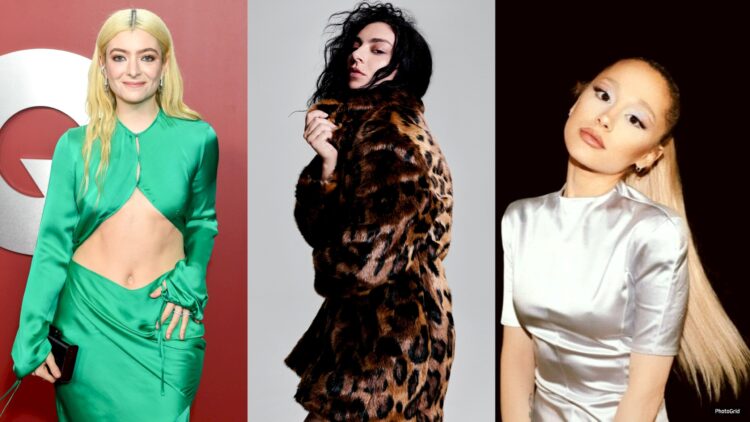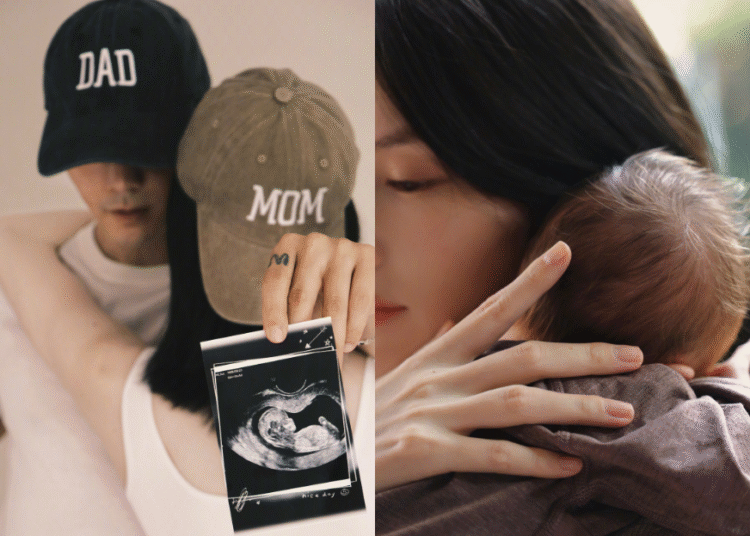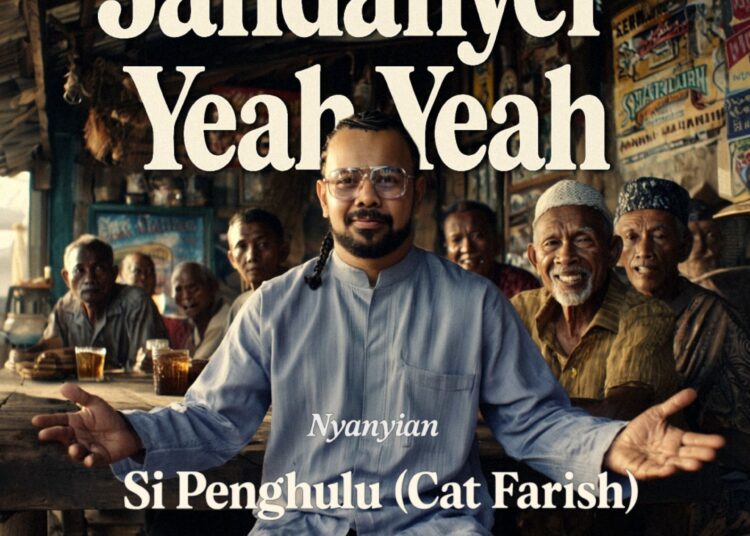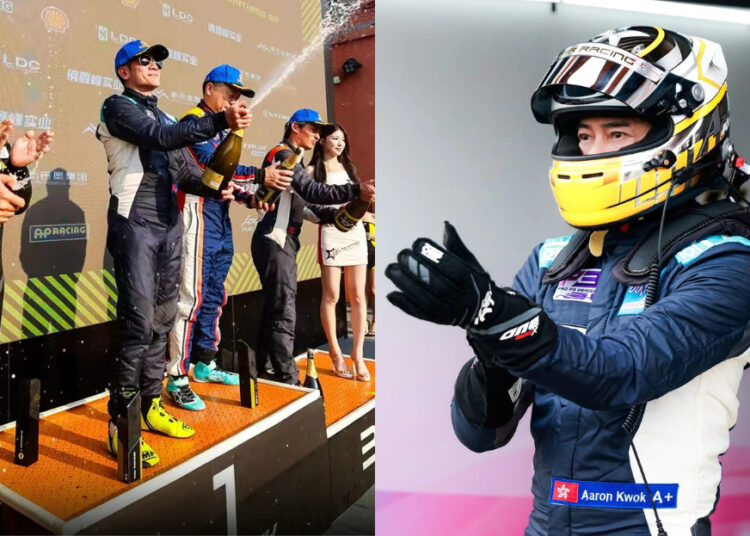Charli xcx is gearing up to release the remix album “Brat and it’s completely different but also still brat”. The 16-track album is filled with music guests ranging from Billie Eilish, Troye Sivan, and Addison Rae, to Ariana Grande and Lorde.
Ahead of the anticipated release later this week, the British singer set down with Zane Lowe on Apple Music 1 to talk about the success of “BRAT”, carving out her own path in the entertainment industry, how her collaborations with Ari and Lorde came about. Take a look at the interview transcript below or scroll all the way down for the video interview.

Charli xcx on her superstardom
Charli xcx: I’m sort of hanging on by a thread in ways, but I also think this has been the total opposite of an overnight success story. So I think I am prepared in ways for what’s happening right now in terms of the pace of things and also in terms of my level of engagement with reality versus fantasy. And yeah, it’s, I think, easier for me to take a lot of things with a pinch of salt because of how long I’ve been doing this for.
Zane Lowe: Yeah, it’s funny, you talk to people who have been introduced to you this summer and they’re like, “Who is she?” And then there’s a whole bunch of us who are like, “At last.” And sort of one or two. It’s either or. And I wonder, it kind of must feel a little bit like both for you in a way, because we’ve known each other a long time and I’ve always joked with people about the world’s got to catch up to you. You shouldn’t try to catch up to the world. And so how does that kind of validation feel now?
Charli xcx: Obviously, it feels on one side of things really amazing to have made this album where I really truly made no sacrifices at all. I really was preparing myself for this album to sort of be for my fan base only and not really break outside the walls of that at all…And so when many new people began kind of reacting to not only the music but the sort of culture around me as an artist, I was like, “Oh wow, this is so awesome because I’ve not really sacrificed any part of myself to appeal to more people,” which is something that I always kind of felt like I had to do because I never felt traditionally, I don’t know, pretty enough or that I was doing or saying the right things in the sphere of pop music to be accepted enough on a larger scale. And so, I suppose it’s been very rewarding that I’ve really truly just been myself, as cheesy as that sounds, and more people are listening to my music, because that’s really the kind of ultimate goal for me, to be able to make what I want to make, but kind of lots of people to hear it. And then on the flip side, it’s just quite overwhelming, I guess.
Charli xcx on becoming her own artist
I’ve always been caught in this dichotomy of am I a left-field, underground artist, or am I supposed to be a pop star? And I think “Crash” was me kind of toying with the idea of, no, I’m going to be a pop star, but also putting this protective layer of, “but it’s a concept” around it just in case it failed or whatever. And I think artists always figure out ways to protect themselves from public discourse in their own ways, and I think that was mine during that time. After that whole process, I really did just feel like, “Okay, you know what this next one is for me.” It’s that thing of one for them, one for me. And this next one I was like; this is for me. I’ve done the, “I’m playing the game.” I’ve done the, “I’m doing radio,” whatever. I was like, I’m just not doing that anymore. I’m just not. I’m not built for it in the way that other people are. It doesn’t bring me joy.

Charli xcx on the growing popularity of niche music
Going into ‘BRAT,’ I was very much focusing in that same way as with ‘Vroom Vroom’ and ‘Pop 2.’ Like, “This is for me, for my fan base, etc.” But I kind of wrote this sort of manifesto. It was really clear. It was just essentially saying all the things that I should have said when I was doing ‘Vroom Vroom,’ but probably didn’t have the confidence to say. But essentially that this record, there’s going to be no traditional radio songs, whatever. There’s not going to be that traditional, “this is the single” kind of a vibe, because we don’t live in that world now. And you, the label should recognize that. And you should recognize that this fanbase that I have built are so hungry for me and my peers and our slightly left world of pop dance music… they’re hungry for us to succeed. And that doesn’t mean that we have to do any pandering to any other side of the industry. We just have to do it for them. And we have to make them feel so special because they are, because they’ve championed me and us for so long, and that’s all we need to light a fire. And I think now niche is rewarded so much more than it ever has been, and I think that labels recognize that. And I think I spoke with such confidence and aggression, I suppose, in parts that I think, yeah, they got it. They got on board, and they left me alone, and that’s really all I’ve ever wanted, to be left alone. And so, then I could just do my thing, Zane, and it works. And I think what’s really interesting is out of this time where, and I feel like a little bit arrogant saying this perhaps, but out of this time where the niche is so rewarded after serving the niche, actually kind of a monoculture moment happened, which we don’t see a lot of in this day and age.
Charli xcx on the creative process on the ‘Brat’ Album Artwork and Marketing Strategy
Zane Lowe: Where were you when the idea of presenting it through the green with the lower-case font, the blur, the various sort of early stage digital, where were you, where did that come from?
Charli xcx: Where the actual first idea of doing a text cover came from was to save money, because I was like, “This album is not going to appeal to a lot of people.” I was like, “I think I will do a press shoot and then maybe we just save on the album cover and maybe it’s cool.” Seriously though, I was like, “I think it’s also cool because I’ve been on every cover of mine apart from Vroom Vroom, so actually it kind of punctuates the pattern in quite a nice way, but also handy because it’s going to be a lower spend.” And then everyone was like, “Well, that’s the stupidest idea ever.” And I was like, “No, hear me out.” Everyone, Brandon, my manager, my creative director, Imogen, all my friends, everyone was like, “No, not the text cover.” And I was like, “No guys, seriously.” And it actually feels like it very much embodies the word ‘brat’ to kind of not be there because that is sort of less of the norm, I suppose, for female artists. So that sort of felt punchy and the kind of pixelation, it sort of makes it look like its kind been done in this sort of rush, we didn’t get the proper high-res file, we did, but it’s like that’s what people think. And the shade of green, we really honed in on what that should be and wanted to go for the one that the most people in our core group had the most adverse reaction to.…because I think it’s like I knew that it would generate this conversation. I knew that a lot of people would be sort of frustrated or disappointed by it. And I think for me it’s like I would rather have those conversations, which actually in some cases became quite explosive, than a picture where people are like, “She looks good.” It’s like I enjoy the conversation because that’s what I enjoy about music myself. I enjoy the conversations that I have with A. G. about whatever it may be, the artwork or the font of some release that we’re into. It’s really fun to dissect that, and it was so cool that I saw so many think pieces written by fans, essays about the cover, and then later about the marketing.
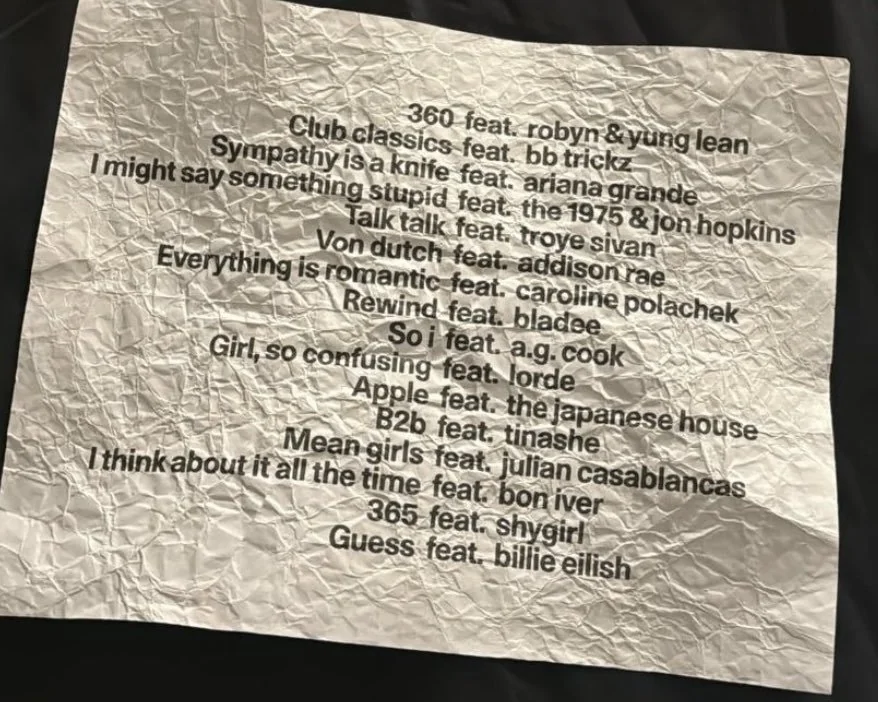
Charli xcx on being influenced by Julian Casablancas, Daft Punk and the NY Dance Scene
Zane Lowe: This remix project, I don’t even know if I should call it that, completely different, but still Brat. It’s one of the most beautiful, honest, flawless dance records I’ve ever heard. First of all, it is a club record. I don’t want anyone to get this twisted. It is a modern, brilliant club record, and I know that you are genre agnostic, but do you agree that you’re making, that you’ve made a club record?
Charli xcx: Yes. Yeah. I agree that the original album and the remix album, again, I don’t really know if it’s called that.
Zane Lowe: It’s a new album.
Charli xcx: Yeah, it’s a kind of new album, isn’t it? Yeah. Yes. I agree that they’re dance records, they’re both very much rooted within club culture, hence the Boiler Room. And yeah, that’s where I came from.
Zane Lowe: Yeah, you came from the warehouse scene in the beginning, the raves.
Charli xcx: Yes. It’s kind of paying homage to that and the different sort of textures of those spaces and working with Gesaffelstein or A. G. or George or whoever it may be, it really does, to me, feel like a dance record. And it was fun on the remix album to bring all of these people in, some of whom aren’t particularly connected to the club world when you would think about it on the surface, but actually, Julian Casablancas, for example.
Zane Lowe: Bon Iver.
Charli xcx: Yeah.
Zane Lowe: Who, if you go through Bon Iver’s deep cuts, or you really go through his collection as Justin Vernon, not just as Bon Iver, he’s constantly moving in electronic spaces.
Charli xcx: Absolutely. Yeah. Yeah. And when I think about Julian, it’s like, “Okay, has this sort of history with Daft Punk and also-“
Zane Lowe: And The Strokes are a dance-
Charli xcx: Yeah, exactly. It’s like you talk about New York downtown, it’s like people were partying then and really in a hardcore way, and so I think he of all people understands how to capture that kind of an energy in a room and on the songs. It was definitely crazy pulling that all together.
Zane Lowe: The collaborators are insane. I mean, I think it might be up there with the most impressive collaboration project on paper.
Charli xcx: Thanks.
Zane Lowe: It’s nuts. I mean, you’ve got uncredited Dua Lipa on there.
Charli xcx: I actually pitched it to her because I was like, “We can do it as a feature, but maybe it’s…” I was like, “If you were going to do it as a feature, it should be more.” But I’m into the fact that she’s just like, ” F**k it, I’m learning two languages and I’m going to be fluent in both of them within three years.” Or whatever it is. And I’m like, “That’s so cool. Come and do that on this song.” Which is already about communication, talking in French and Spanish. I was like, “Well, you were born to do this. Let’s go.”

Working with Ariana Grande on “Sympathy is a knife”
Charli xcx: I think what’s interesting about the remix album, you mentioned this is I was writing the original record when I was in a very different position than I am post the release of Brat working on the remix album. So my perspective has changed a lot.
Zane Lowe: Are you referring to now you’re in the glare?
Charli xcx: Yeah. And definitely comparative to some other artists. Not at all. But for me personally, from where I was to now, I’m definitely finding more than ever that my words are being picked apart, taken out of context. I offend a lot more people by doing exactly the same things. Sort of nothing like groundbreaking here, but I suppose because no one really cared too much before what I was doing on a personal day-to-day level, I was a bit shocked. And it gave me so much empathy for bigger artists who go through that on a daily basis and have been for years. It’s hard. It’s hard to be constantly scrutinized for things that you have said. It’s hard for your words to be taken out of context and then really feel that you just can’t defend yourself because that would open a whole other can of worms. And so “Sympathy is a knife,” the remix version, it was kind of about me recognizing that and me understanding that you are only really knowledgeable about your own position. And once mine had changed, and I had felt that I’d gone through a few interviews throughout this campaign where I’d felt perhaps that I was being a little bit manipulated or there were other agendas at play, and I’d never felt that before. I had heard that Ari wanted to do something and I was like, “This is somebody who definitely knows this feeling more so than me.” And so when she wanted to take this phrase like, “It’s a knife,” obviously, we’re so lucky and blessed to be in the situation that we’re in. All artists who are able to make music at the level that they’re making it financially support themselves from creating art. It’s like we are lucky because not all artists get that.

Reconnecting with Lorde for “Girl, So Confusing”
Charli xcx: I was ready for her to never speak to me again. That could have been an outcome.
Zane Lowe: Yeah, because you called her the day before the record came out, so, too late.
Charli xcx: Yes. Well, New Zealand gets it first, and I guess she’s still on New Zealand’s apps.
Zane Lowe: Did you realise that? Oh, my God. You were like, oh, my God. I’ve got to make this call now.
Charli xcx: Yes. But I was like, “I’ve got to tell you about this song.” And she was like, “Yeah, I’ve heard it.” I was like, “How have you heard it? It’s not out til tomorrow.”
Zane Lowe: It’s already out.
Charli xcx: But because she got the New Zealand apps …
Zane Lowe: Did she know who it was about? Did she pick up on it?
Charli xcx: She was like, “I can guess which one it is.” And so I was like, “F**k.” But she was so cool, and I was like … We sent these voice notes back and forth.
Zane Lowe: It’s just so rad to acknowledge it.
Charli xcx: Yeah, yeah. Well, so I had always wondered whether she would possibly want to do a response on the remix. This was, as I said, I’d always wanted to do this remix album, but she actually suggested it first. She was like, “Wouldn’t it be cool if I did this response?” And I was like, “Oh, my God. I can’t believe this is happening. Yes.” And it was so quick. I mean, she said that on I think the Friday, and she sent me the thing, the verse by Monday.
Zane Lowe: Because she felt it. Right?
Charli xcx: Yeah.
Zane Lowe: She related from her perspective.


